ISABEL ROCAMORA
TROUBLED HISTORIES, ECSTATIC SOLITUDES
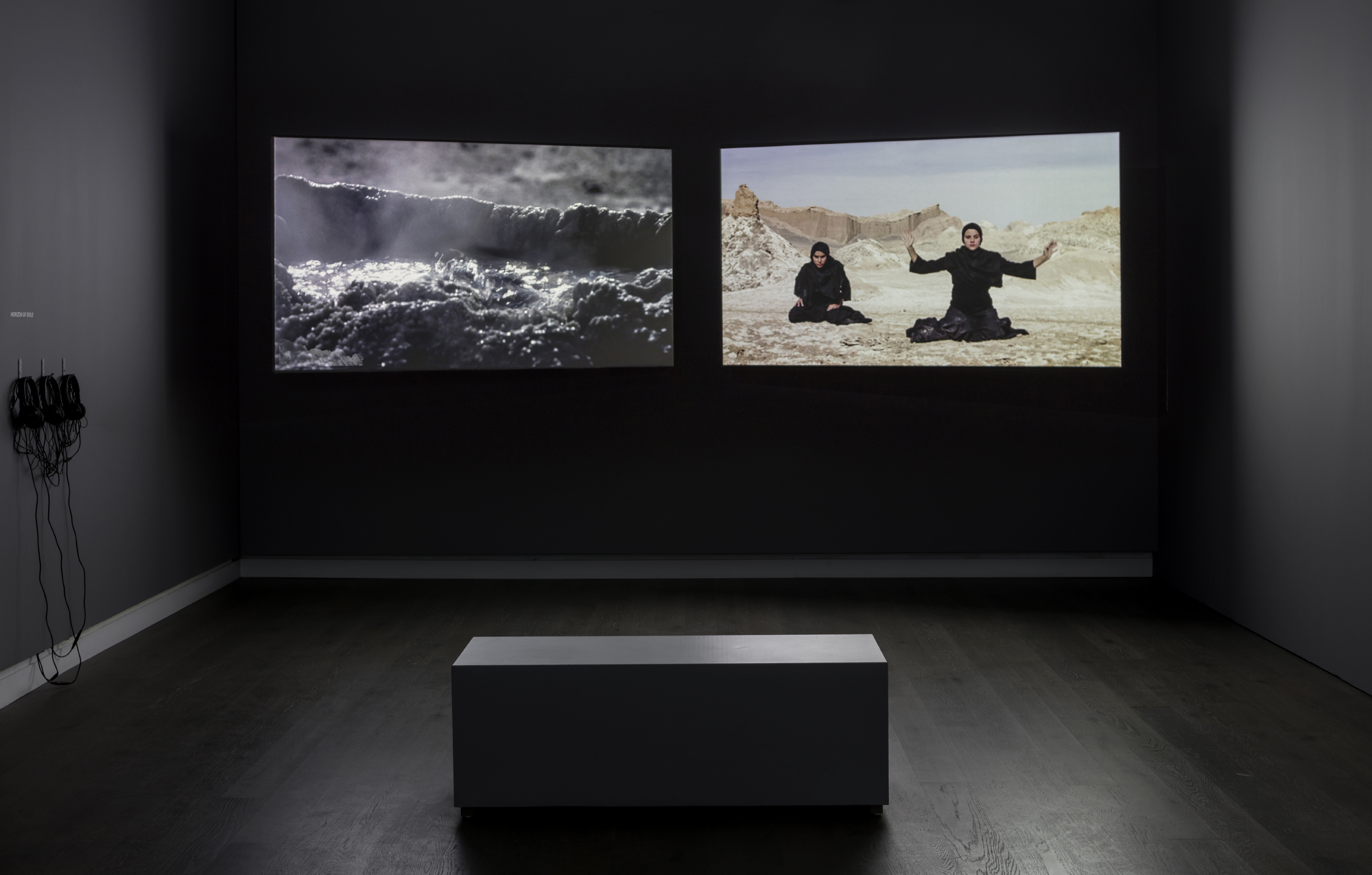
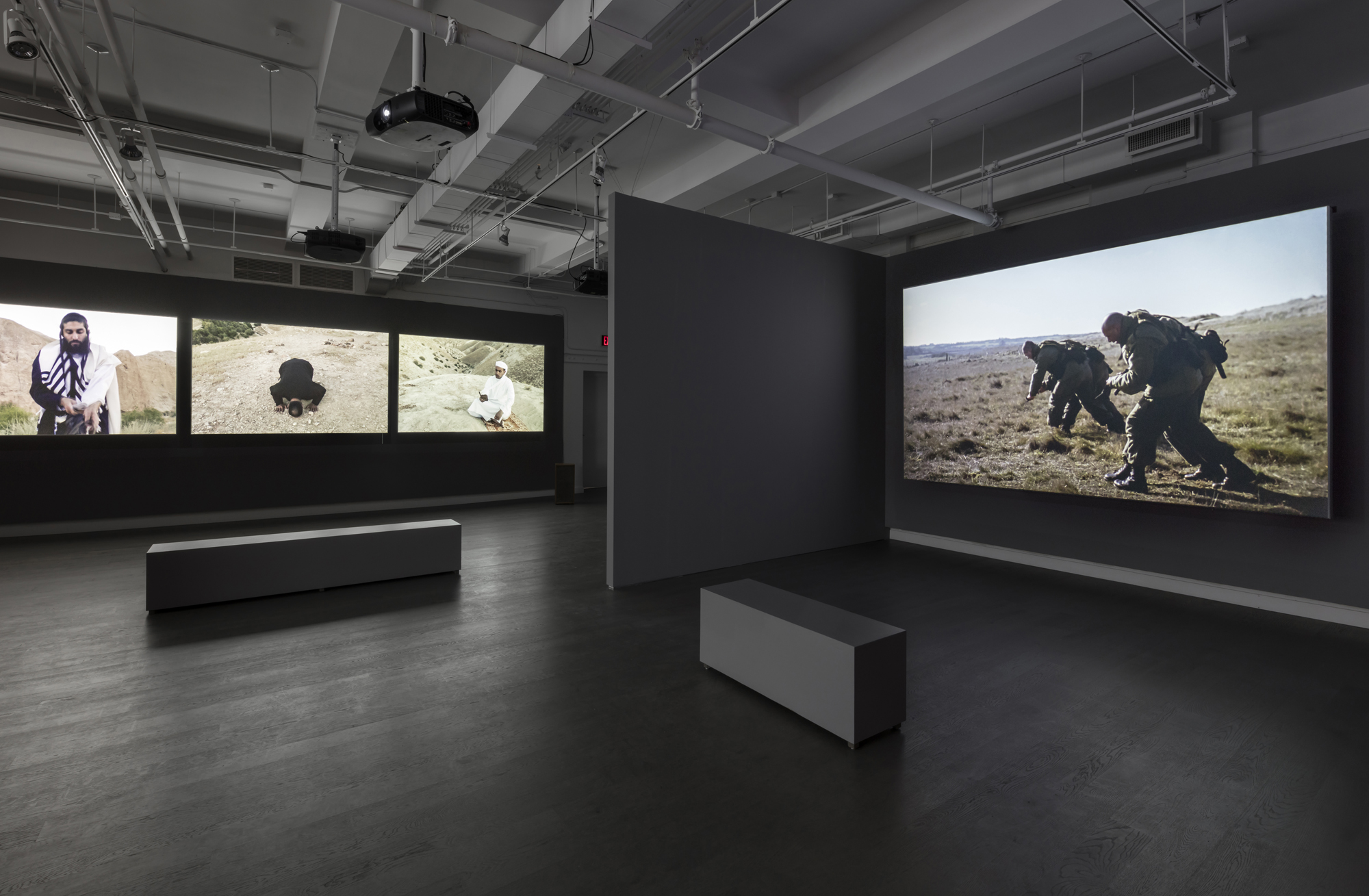
Exhibition
Koffler Gallery, 2015
Photo documentation by Toni Hafkenscheid
Troubled Histories, Ecstatic Solitudes was the first solo show in Canada of British-Spanish artist filmmaker Isabel Rocamora. Seen in museums and filmothèques worldwide, her large-scale video installations consider the performative language of human gesture and its relationship to individual and cultural identity. Including recent and new works, this exhibition examines issues of authority, faith, exile, territorial attachment and the intimacy of violence.
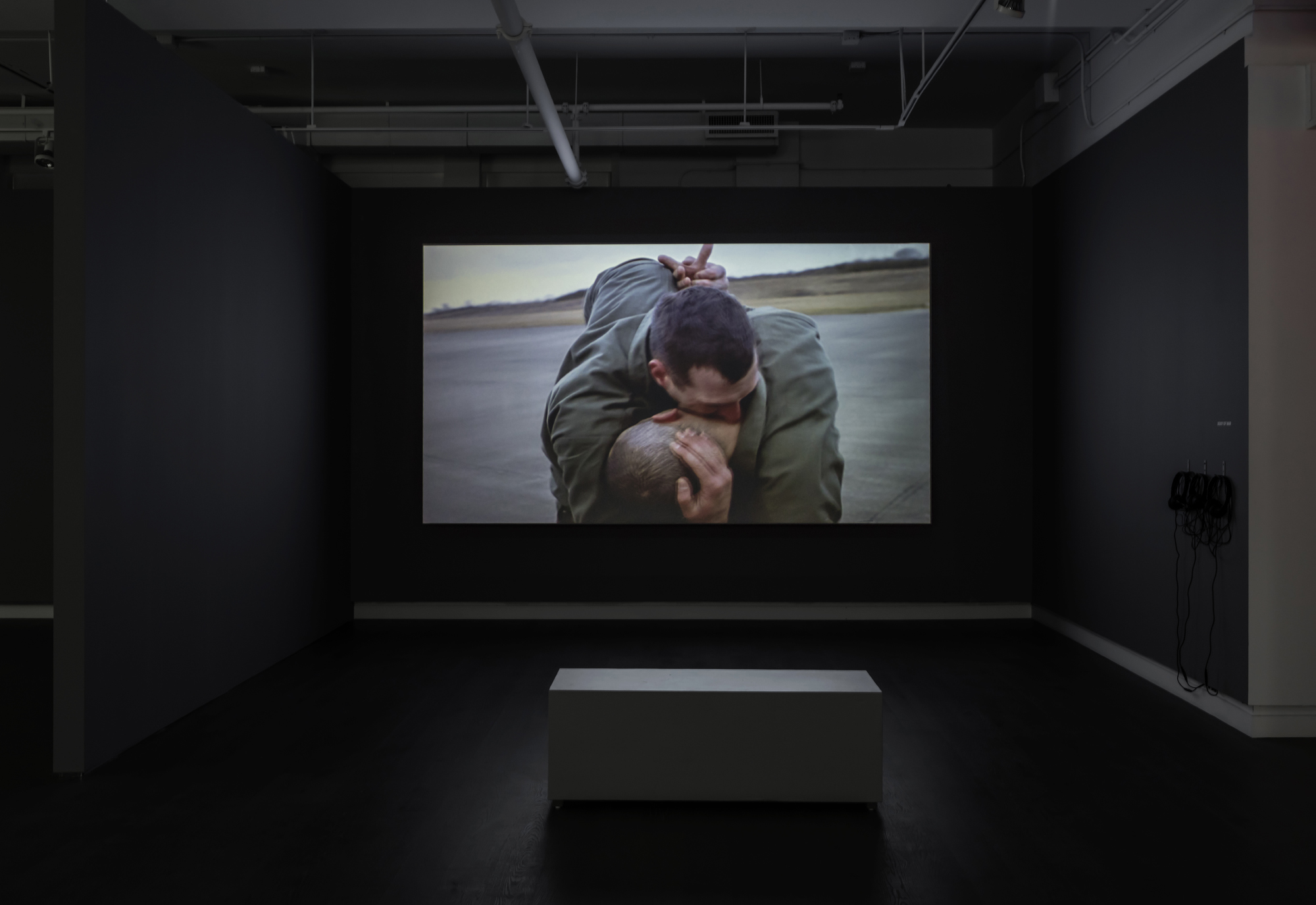
Referencing photography and its traditional claim of providing a genuine representation of identity, Portrait in time and gesture (2005) poetically examines the transformation of the self’s core over the course of an individual’s history. Looking at moments of inconsistency and oscillations over time, the film describes a body that is at once separating and re-uniting with itself, betraying feelings of self-multiplication and revealing gaps in self-perception.
Set in the historically charged landscape of the Normandy beaches, Body of War (2010) reflects on the transformation of man into soldier. Punctuated by testimonies of retired and serving soldiers, the film deconstructs, through its rigorous mise-en-scène, the visceral act of hand-to-hand combat – immersing the viewer in the relationship between human intimacy and the brutality of war.
Across two enveloping projections and positioned between the fictive and the testimonial, Horizon of Exile (2007) stages female identity at the centre of a poignant meditation on the underlying cultural causes of displacement. Set in vast desert scapes and guided by individual narratives from the Middle East and Latin America, the film reflects on the condition of women within authoritative societies, employing testimonies and choreographed bodies to consider issues of self-image, belonging and effacement.
Set in the historically charged landscape of the Normandy beaches, Body of War (2010) reflects on the transformation of man into soldier. Punctuated by testimonies of retired and serving soldiers, the film deconstructs, through its rigorous mise-en-scène, the visceral act of hand-to-hand combat – immersing the viewer in the relationship between human intimacy and the brutality of war.
Across two enveloping projections and positioned between the fictive and the testimonial, Horizon of Exile (2007) stages female identity at the centre of a poignant meditation on the underlying cultural causes of displacement. Set in vast desert scapes and guided by individual narratives from the Middle East and Latin America, the film reflects on the condition of women within authoritative societies, employing testimonies and choreographed bodies to consider issues of self-image, belonging and effacement.
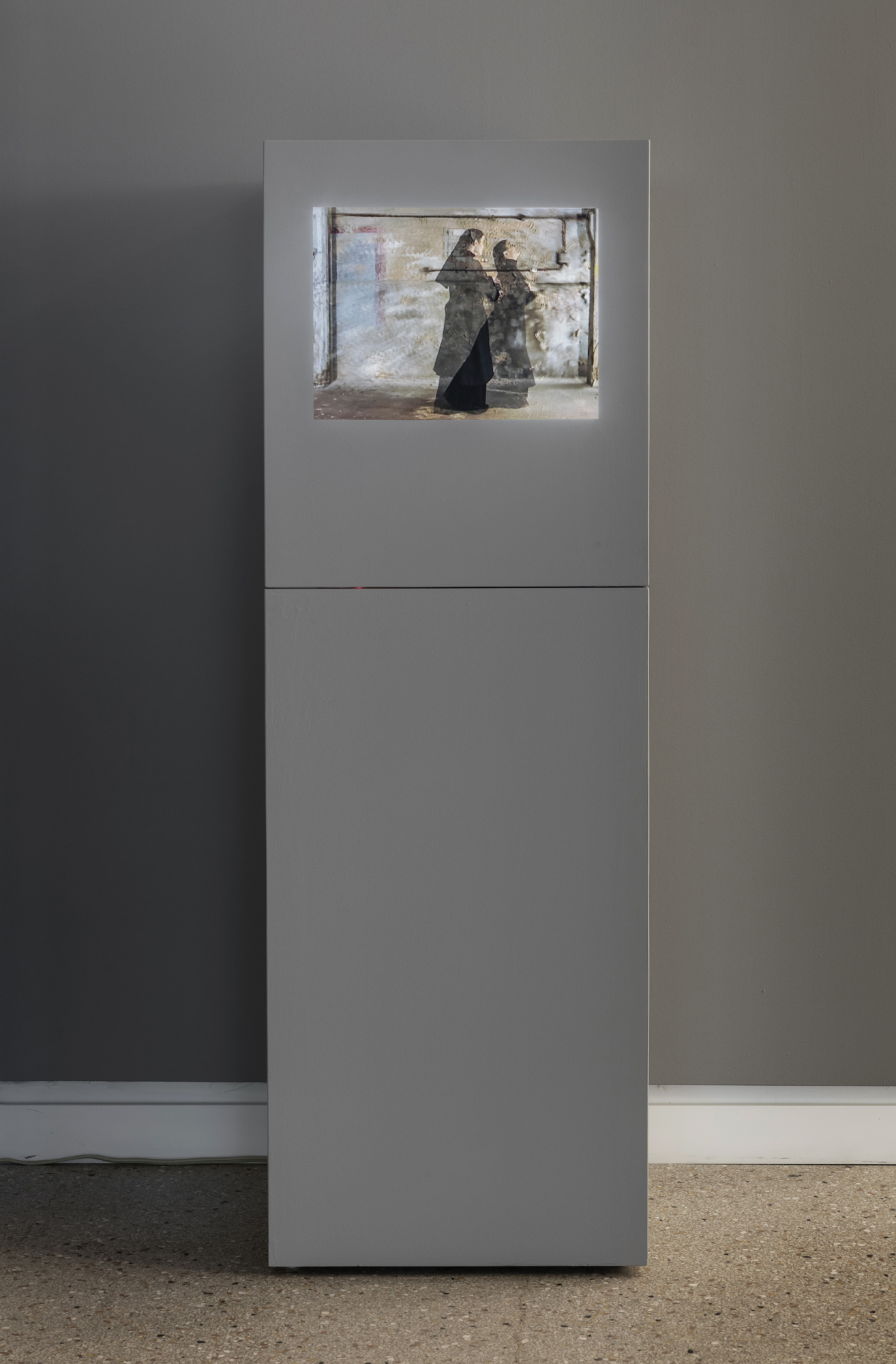
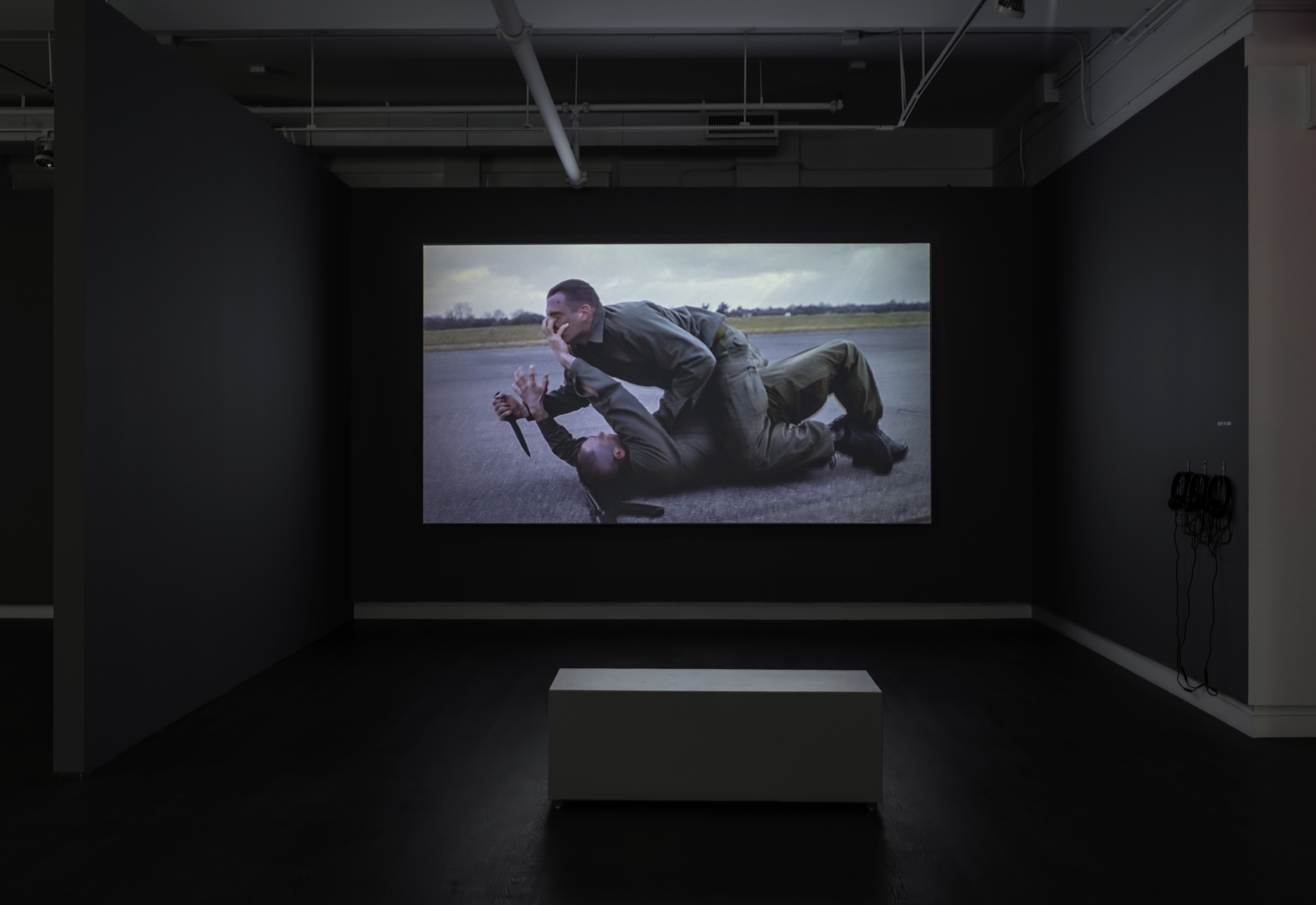

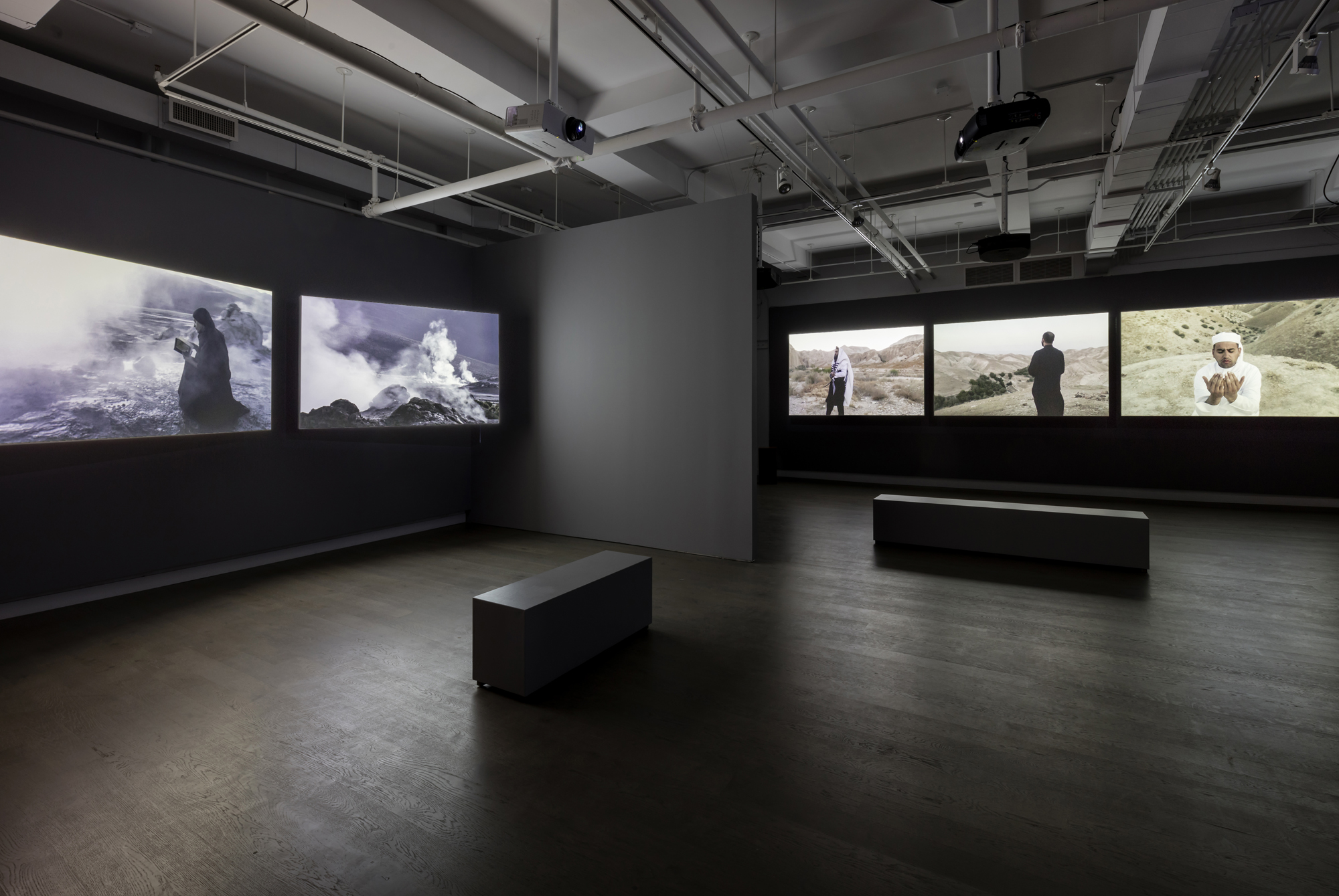
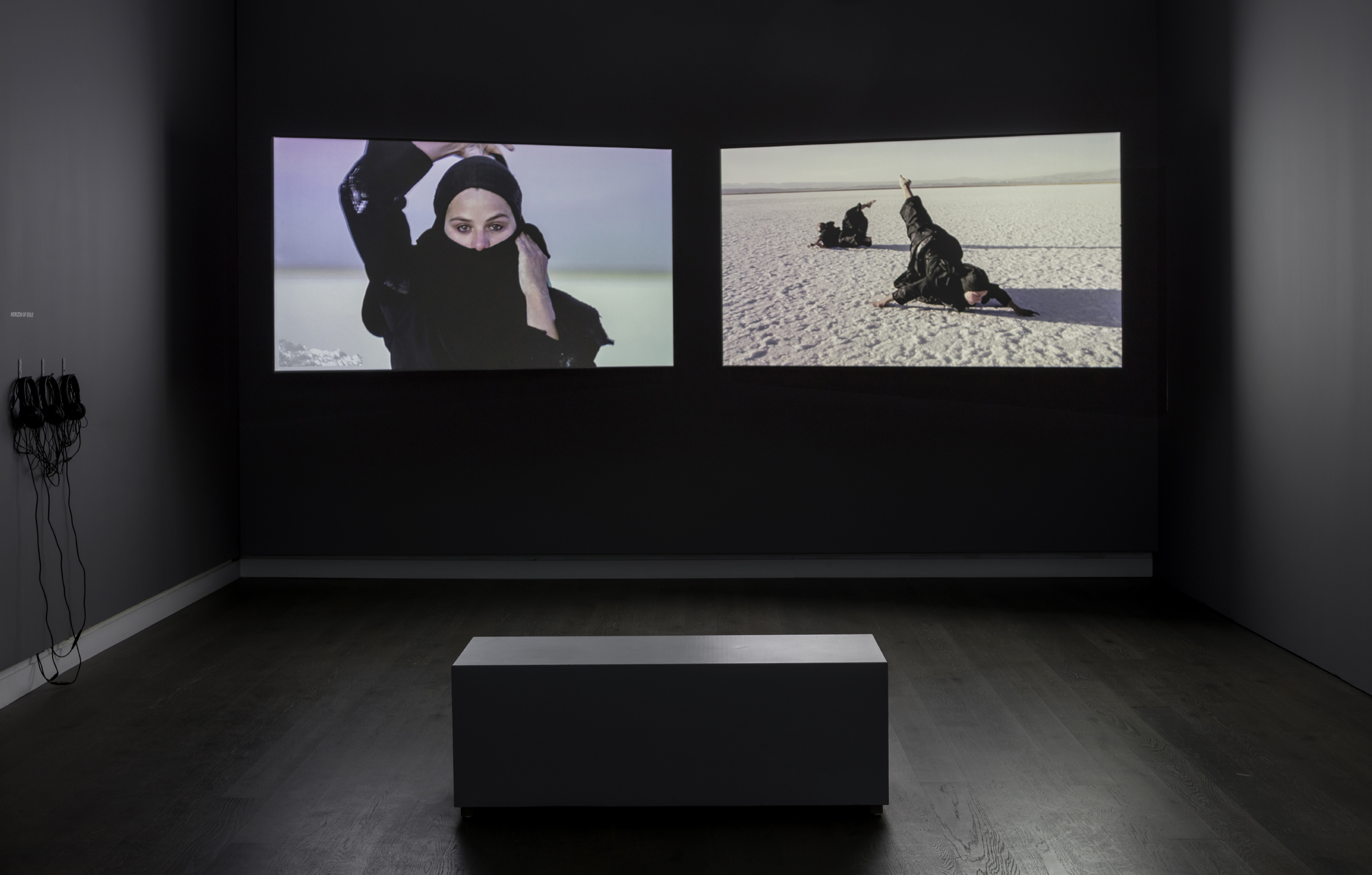
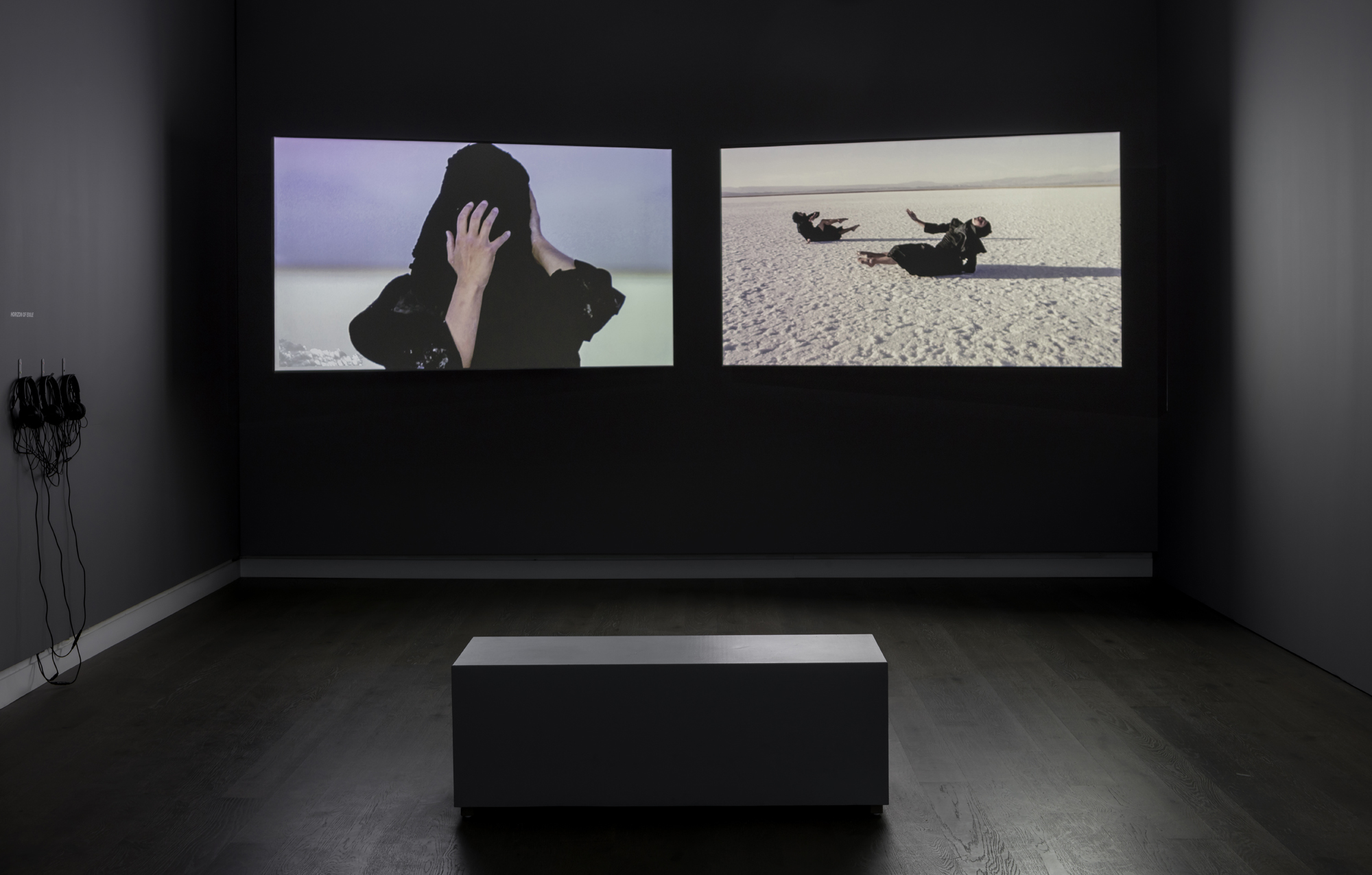

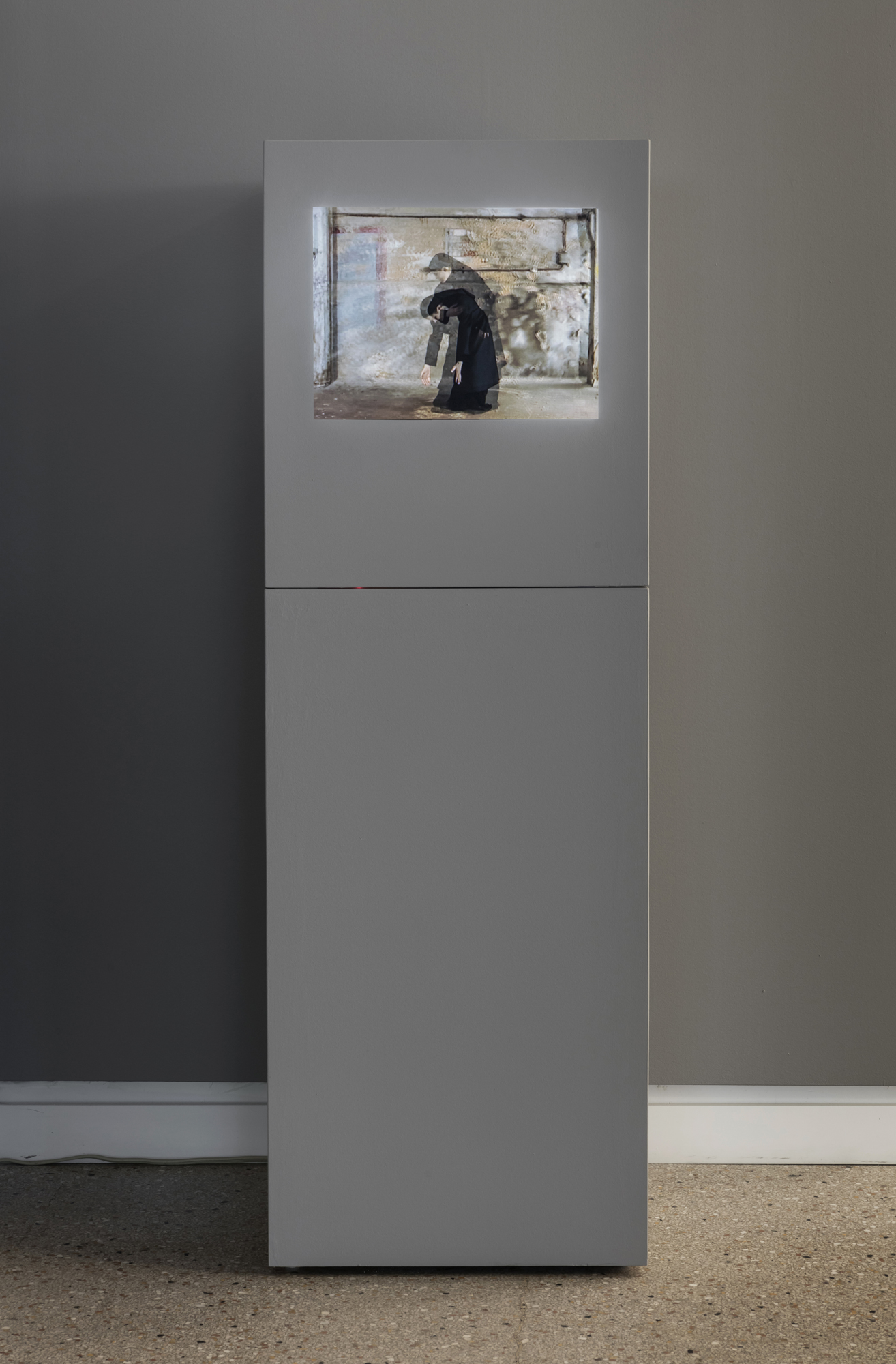
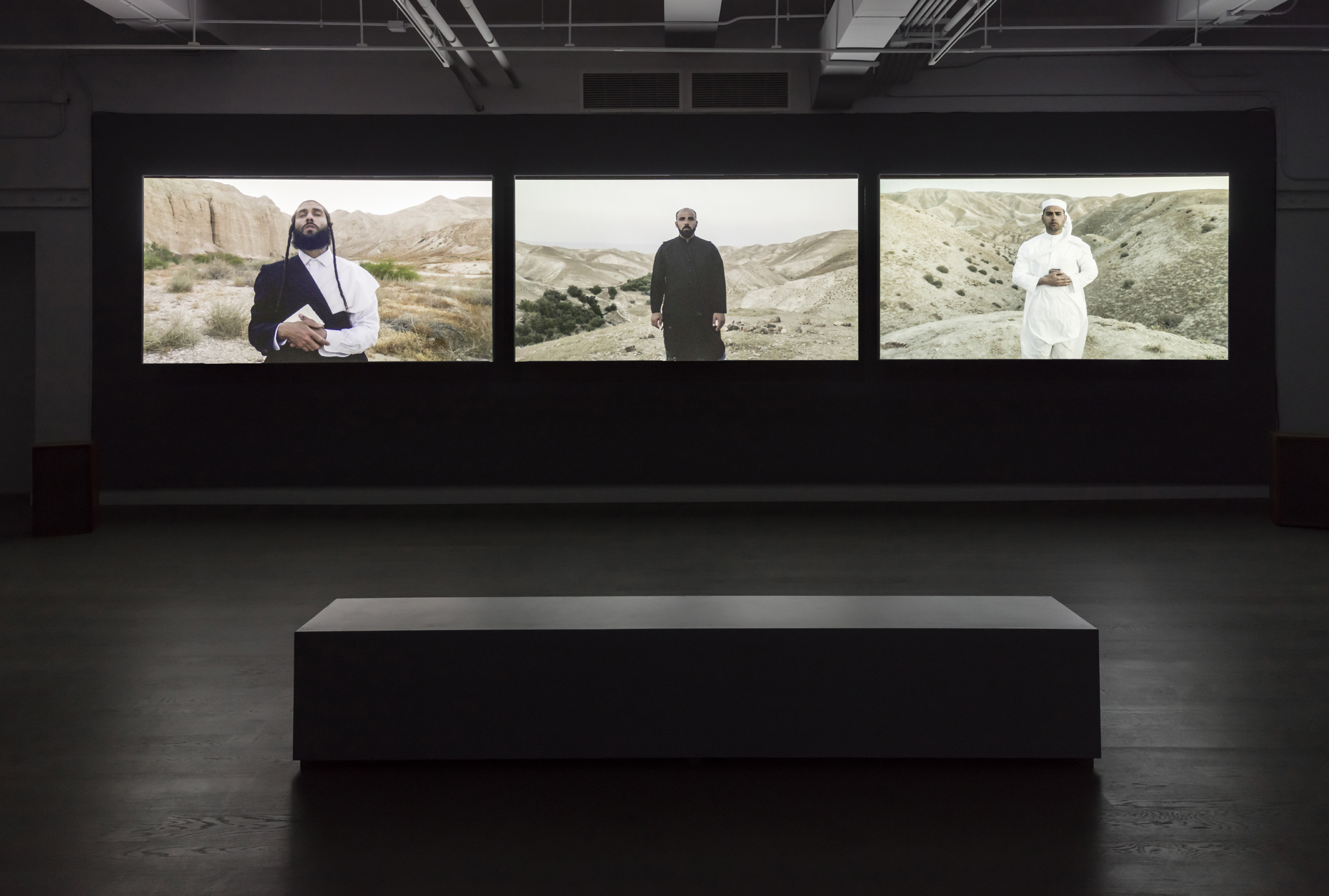
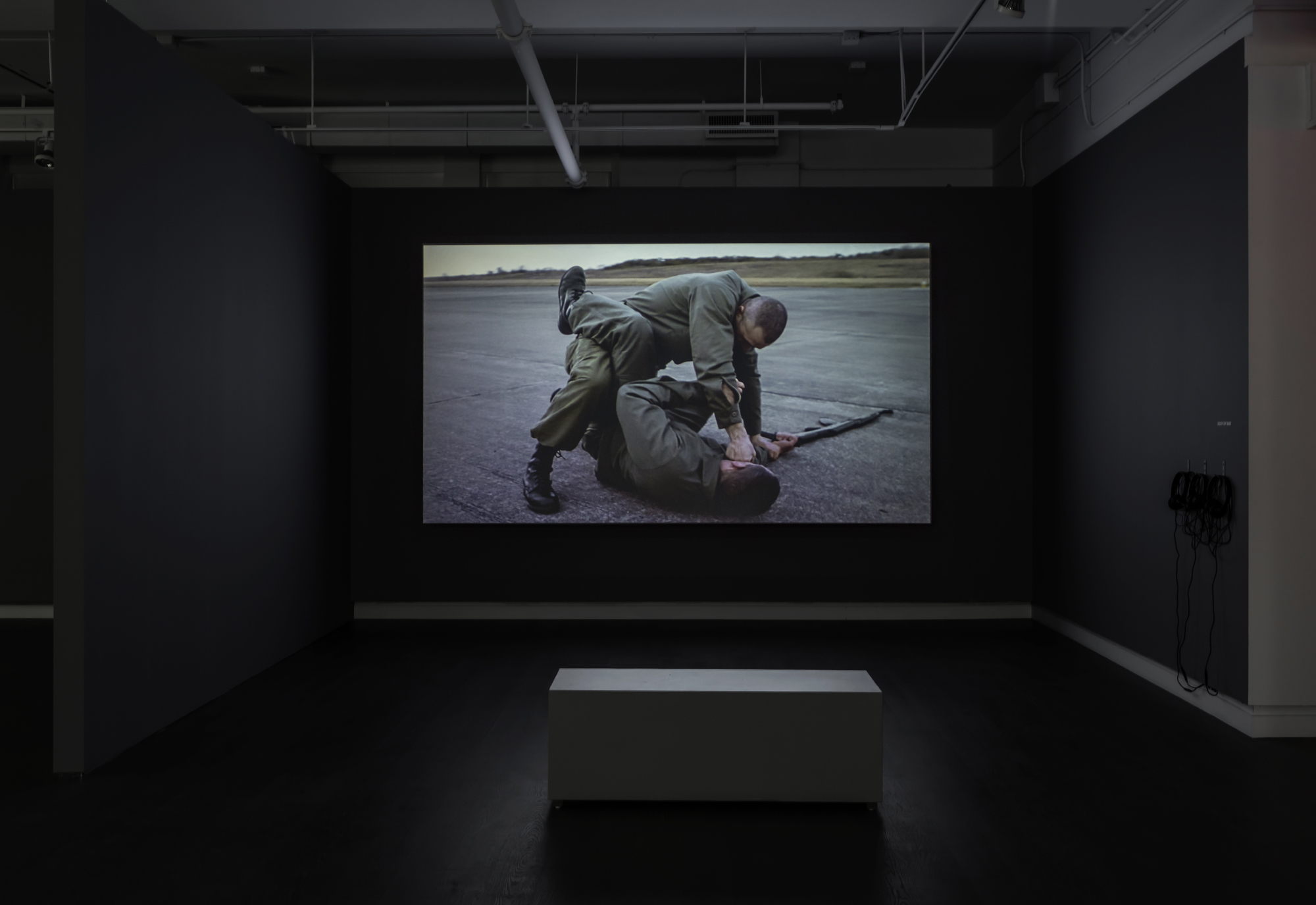
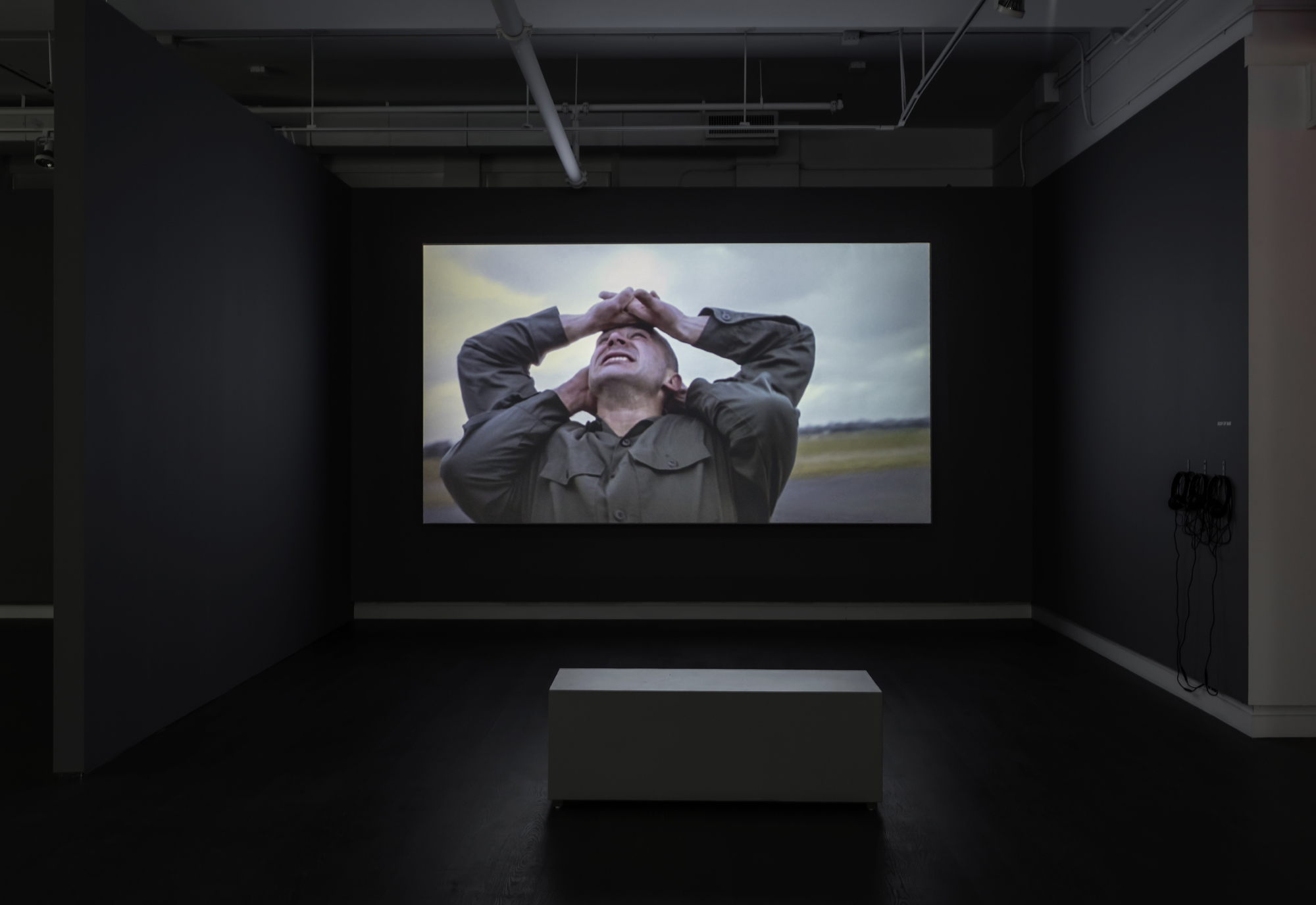

Premiering in this exhibition, Rocamora’s latest work, Faith (2015), contemplates the conflict between the three dominant religions in Jerusalem, seeking a common ground in the gesture of prayer and its essential humanity. The three-channel film juxtaposes three men – one Orthodox Jewish, one Greek Orthodox Christian and one Sunni Muslim – praying in time and place synchronism, respectively set in the Qumran Canyon (archaeological Jewish site), Wadi Qelt (location of Christian retreat caves) and Nebi Musa (route of pilgrimage to Mecca). The Judean Desert thus serves as shared setting for the intimacy of worship, referencing both the Biblical holy land that nourishes all three religions and a liminal landscape positioned as potential threshold towards a space of communion.
Revealing a meaningful similarity of inner state and gestural intention, Faith communicates a hope for transcending not only this worldly existence but also our divisive political and territorial debates. As in each of the films presented, the fragile edges of an individual isolated being are exposed, becoming permeable by a latent desire for connection. The self detaches from the rigidity of acquired stances to embody a more authentic, layered version, rooted in the relationship with the other.
Revealing a meaningful similarity of inner state and gestural intention, Faith communicates a hope for transcending not only this worldly existence but also our divisive political and territorial debates. As in each of the films presented, the fragile edges of an individual isolated being are exposed, becoming permeable by a latent desire for connection. The self detaches from the rigidity of acquired stances to embody a more authentic, layered version, rooted in the relationship with the other.
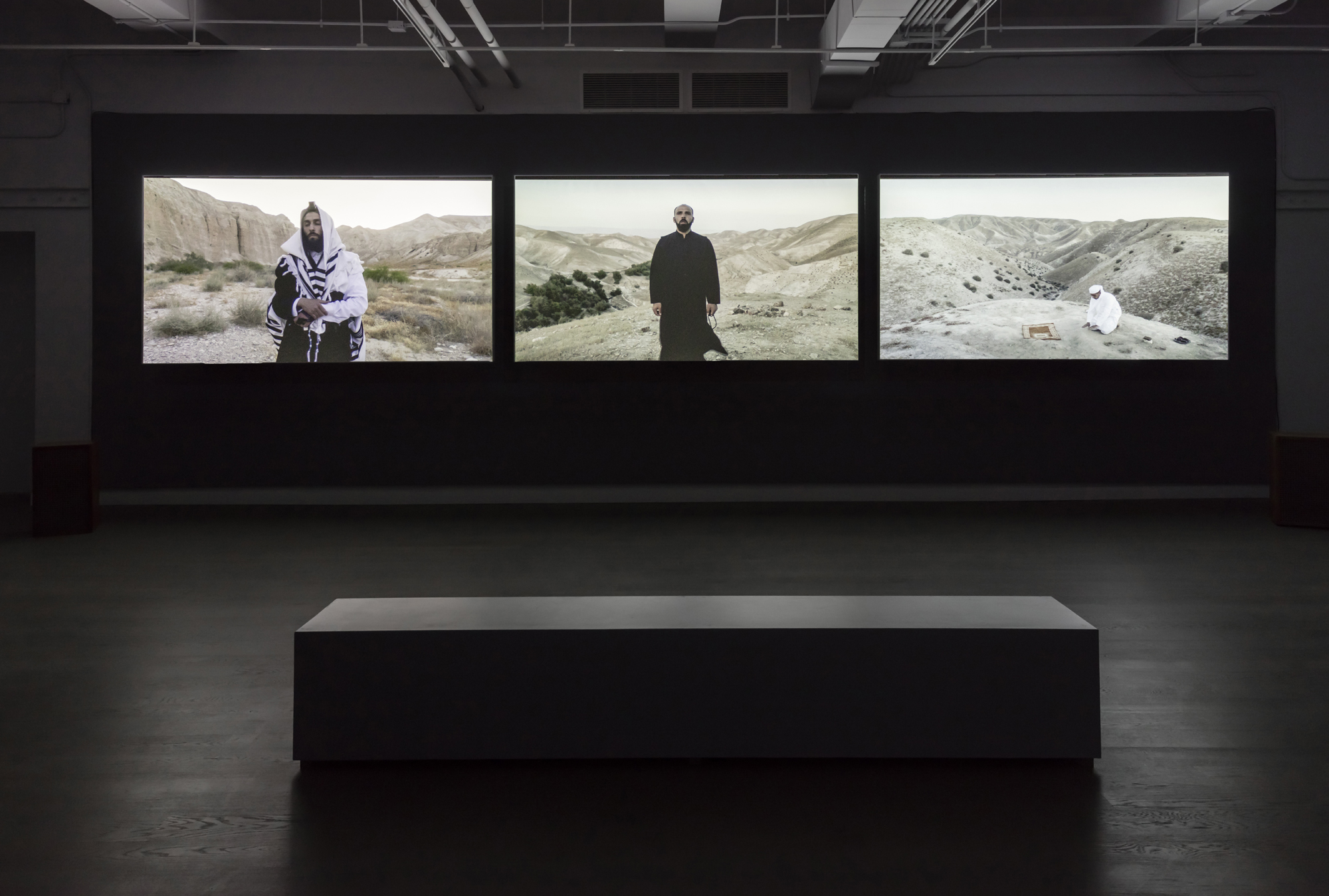

Artist Info
Isabel Rocamora is a film director and artist working with the moving image and still photography. Her practice originated in performance, with live works commissioned by institutions including the Victoria and Albert Museum, Institute of Contemporary Arts London, and the Arts Council of England. Awarded internationally, her moving image works have been commissioned by and curated worldwide in galleries and museums, festivals and for broadcast, and are held in several international collections.
Rocamora's films have been extensively exhibited, including: Centre for Contemporary Art Palazzo Strozzi, Florence; National Museum of Photography, Copenhagen; Herzliya Museum of Contemporary Art, Israel; Museum of Modern Art, Bologna; Ullens Centre for Contemporary Art, Beijing; and Austrian Cultural Forum NYC. She has been selected for international surveys of videoart at Artium Museum of Modern Art, Vitoria; The Pacific Centre, LA; Arts Santa Monica, Barcelona; MAC Museum, Galicia and The Venice Biennale (colaterali). Recently, alongside her solo exhibitions Troubled Histories, Ecstatic Solitudes at The Koffler Gallery (Toronto), Ecstatic Solitudes at The Shaw Gallery, Weber State University Utah, and Imaging Faith at Summerhall Galleries Edinburgh, her work has shown at the Musée de la Civilisation, Quebec; MUNTREF Museum, Buenos Aires; Museo Patio Herreriano de Valladolid; and (prior to the war on Ukraine) The Pushkin Museum of Fine Art, Moscow, among other venues.
Rocamora holds a PhD in film-philosophy from the University of Edinburgh, where she has also taught film studies (2015-2019). Previously, she held visiting lectureships in cinema and artist moving image practice at Edinburgh Napier University, Barcelona International Film School and Instituto Europeo Di Design. Rocamora lives and works between Edinburgh and Barcelona. She is represented by Galeria SENDA.

